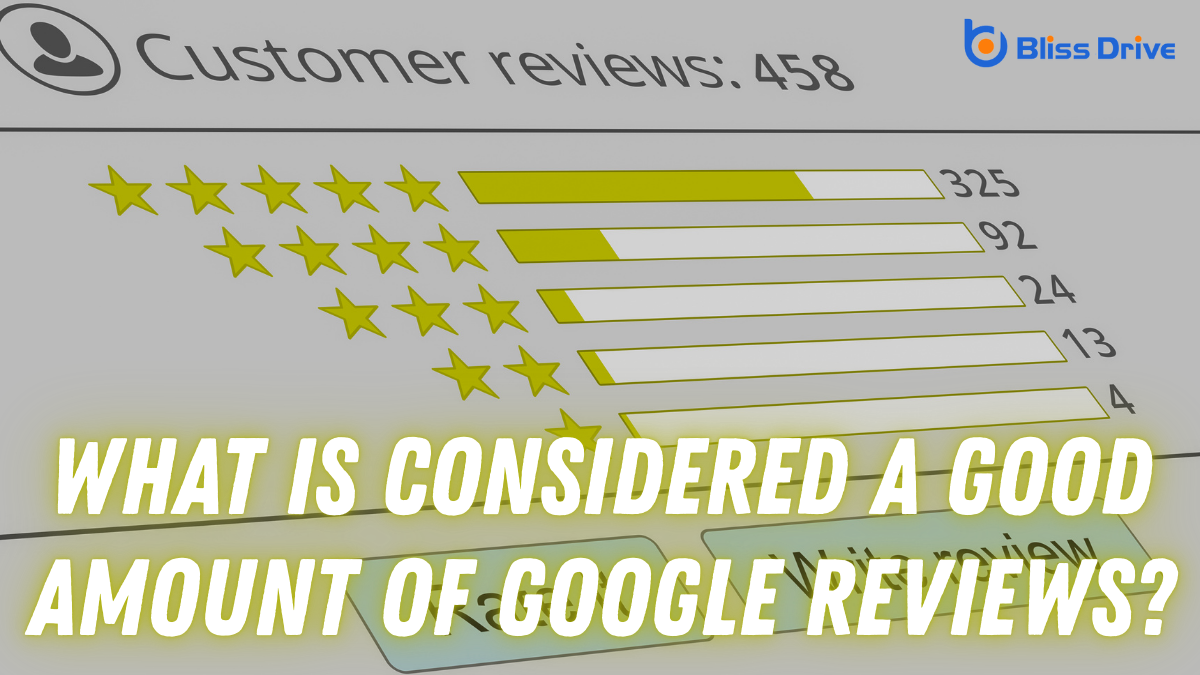Learn More About Us

When considering a good amount of Google reviews for your business, it's essential to remember that different industries have varying standards. For a small local shop, 40-50 reviews might suffice, while a larger corporation might aim for over 100. But why does this number matter so much, and how does it impact your business's online presence and customer trust? Let's explore how you can set realistic goals tailored to your unique business needs.
When it comes to boosting your business's success, you can't overlook the power of Google Reviews. I’ve seen firsthand how these reviews influence potential customers. They serve as social proofThe influence that other people’s actions have on one's own behavior, often seen in likes, shares,..., showcasing real experiences that people trust.
As a business owner, I understand that a collection of positive reviews can greatly enhance credibility and attract more customers.
It’s essential to actively engage with reviews. Responding promptly and professionally not only builds trust but also demonstrates that you value customer feedbackInformation provided by customers about their experience with a product or service, used to improve .... I’ve noticed that even addressing negative reviews positively impacts potential clients, showing them you’re committed to improvement.
Regularly monitoring reviews helps identify patterns and areas for growth. By harnessing Google Reviews, I’ve been able to refine my business strategies and better meet customer expectations.

When I look at how many Google reviews businesses should aim for, I often start by checking the average review counts within the industry.
It’s also essential to compare your numbers against competitors to understand where you stand. Each sector has its own standards, so knowing these benchmarks can guide your efforts effectively.
Understanding the average review counts for various industries on Google can give businesses a competitive edge. By knowing what’s typical in your sector, you can set realistic goals for your own review strategy.
For instance, restaurants and cafes often see higher review volumes due to frequent customer interactions, whereas specialized services, like legal or consulting firms, might receive fewer but more detailed reviews. Typically, a small local business might aim for 40-50 reviews as a starting point, while larger establishments could target 100 or more.
How can you effectively gauge your business's standing against competitors using Google Reviews? It starts by analyzing the number and quality of reviews your competitors have. By comparing this data, you can identify where you stand in the market.
If competitors have markedly more reviews, it might indicate they’re more established or visible. On the other hand, if your reviews are fewer but higher quality, you might focus on promoting these strengths.
Also, look at the frequency of reviews—consistent, recent feedback is vital. Don't just count reviews; assess average ratings and common themes.
This analysis helps you understand customer perceptions and pinpoint areas for improvement, ensuring you remain competitive and responsive to market trends.
While traversing the competitive landscape, it's crucial to recognize the industry benchmarks for Google Reviews within your sector. Each industry holds its unique standards, and understanding them can provide valuable insights.
For instance, a local cafe might find that 50 reviews establish credibility, while a hotel might need hundreds to stand out. Retail businesses often aim for a steady stream of recent reviews to reflect ongoing customer satisfaction.
In contrast, service-based sectors like healthcare or legal services might focus more on the quality and depth of each review. I suggest researching your industry's norms by examining successful competitors.
This way, you can gauge how many reviews you need and focus on exceeding the standard, thereby enhancing your business's reputation and trustworthiness.
When I consider the balance between quantity and quality in Google reviews, I find that diverse feedback is essential.
It's not just about having a high number of reviews, but ensuring they consistently provide valuable insights.
Keeping this balance helps maintain credibility and offers potential customers a clearer picture.
A business's reputation can soar with a variety of Google reviews, giving potential customers a well-rounded perspective. It’s not just about the number of reviews but the diversity of experiences shared.
When I read reviews, I look for different viewpoints. A mix of positive, neutral, and even some constructive criticism helps paint a realistic picture of what to expect. Diverse feedback highlights various aspects of a business, from customer service to product quality, making it more relatable.
I find that when a business encourages honest feedback, it shows they're committed to improvement. This openness builds trust and authenticity.
As a potential customer, I appreciate seeing how businesses respond to both praise and criticism, which often influences my buying decision. Diverse reviews offerThe specific product or service being promoted by affiliates. depth and credibility, enhancing overall trust.
Although many businesses aim to gather as many Google reviews as possible, it’s essential to focus on consistency rather than sheer volume.
Regular, genuine reviews reflect a stable and trustworthy business image. Instead of chasing numbers, I recommend prioritizing quality interactions that inspire customers to leave authentic feedback.
Consistent reviews help maintain relevance and can improve your business's online reputation over time. Here’s why consistency matters:
Understanding the impact of review volume on search engine optimization (SEO) can greatly enhance your online presence. More reviews can improve your search ranking because search engines view them as indicators of credibility and engagement. When you consistently receive reviews, it signals to Google that your business is active and relevant, potentially boosting your visibility.
I’ve noticed that a higher volume of reviews not only strengthens your SEO but also builds trust with potential customers. People are more likely to choose a business that others have positively reviewed.
It’s essential, though, to focus on genuine and diverse feedback rather than just quantity. Quality reviews that reflect authentic experiences can make a significant difference in how search engines and consumers perceive your business.

To boost the number of customer reviews, start by creating an experience worth talking about. When customers leave delighted, they're more inclined to share their thoughts.
Here are some strategies I've found effective:
These steps can greatly enhance your review count.
While increasing the number of positive reviews is important, dealing with negative feedback is equally significant. When I see a negative review, I view it as a chance to improve and demonstrate my commitment to customer satisfaction.
I always respond promptly and professionally, acknowledging the issue and expressing genuine concern. It's essential to address specific points raised and, if possible, offer a solution or compensation.
By doing so, I not only resolve the customer's problem but also show potential customers that I care about feedback. I remember to keep emotions in check, focusing on constructive communication.
This approach helps turn a negative experience into a learning opportunity, ultimately enhancing my business's reputation and credibility.
Positive reviews are golden opportunities for building brand trustThe confidence consumers have in a brand's reliability and integrity. and loyalty. When customers share their great experiences, it’s like receiving a badge of honor.
I've found that leveraging these reviews can greatly boost a brand’s image. Here are a few ways to make the most of them:

Monitoring Google Reviews can feel overwhelming, yet it's crucial for maintaining a strong online presence. I rely on tools and platforms that streamline this process, making it easier to keep tabs on feedback.
Google My Business is a great starting point; it provides notifications and insights directly from the source. Platforms like ReviewTrackers and Podium centralize review monitoring across multiple sites, while BirdEye offers analyticsThe systematic computational analysis of data or statistics to gain insights and support decision-ma... to help identify trends and areas needing improvement.
These tools not only aggregate reviews but also offer response management features, allowing me to engage with customers efficiently. Additionally, setting up Google Alerts guarantees I never miss a mention.
Understanding that businesses vary in size and sector is key to tailoring an effective review strategy.
I recognize that a one-size-fits-all approach won’t work for everyone. Whether you're a small local café or a large tech company, your review strategy should reflect your unique needs.
Here’s how to align your approach:
Tailoring strategies guarantees that reviews effectively support your business growth.
In steering through the world of Google reviews, I've learned that it's all about balance. You can't overlook the power of both quantity and quality when it comes to building trust and enhancing visibility. By setting realistic goals based on your industry and leveraging strategies to encourage and manage reviews, you can boost your business's credibility. Remember, each review is a step towards establishing a strong connection with your audience, so use them wisely and watch your business thrive.
